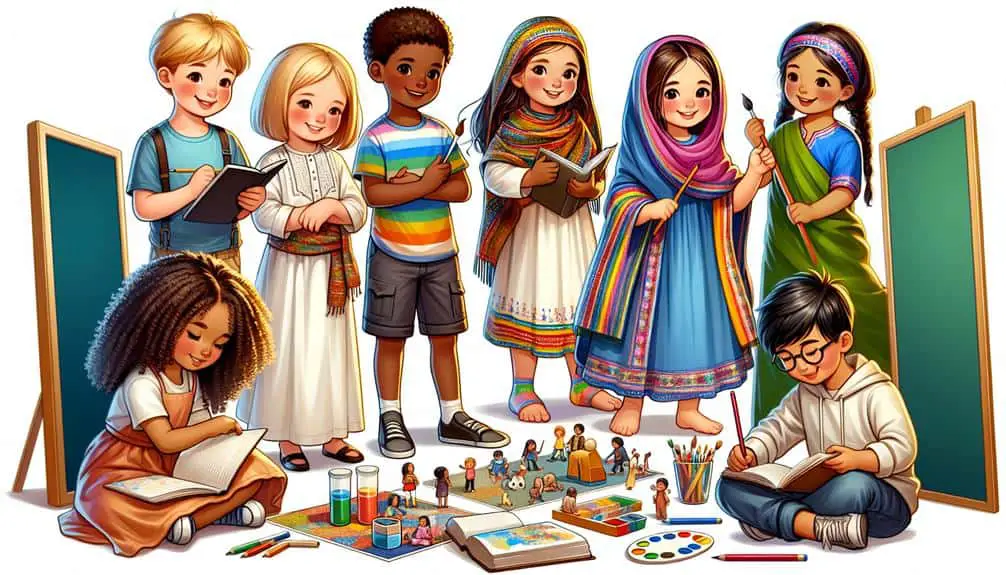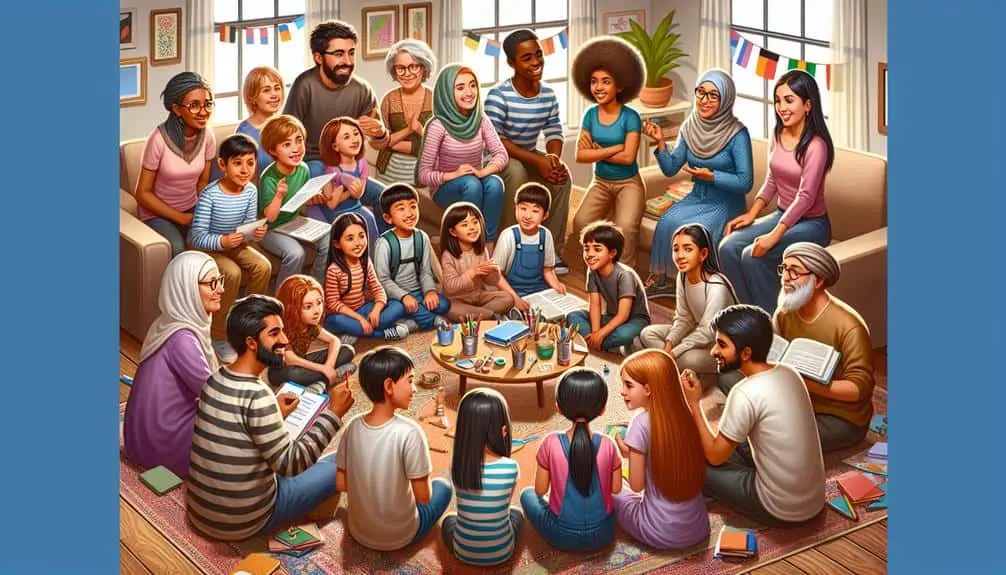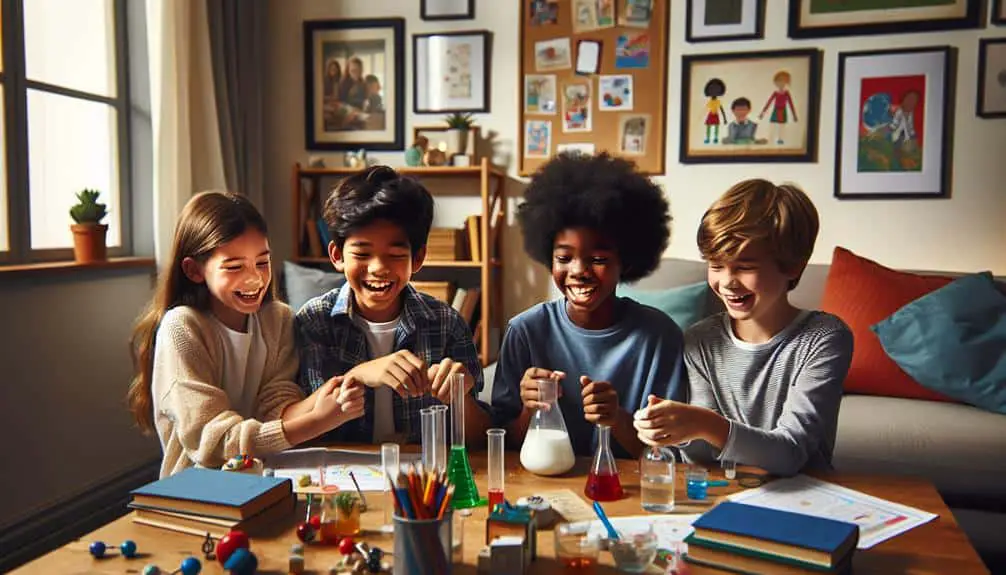Engaging with diverse groups in homeschooling enriches your learning by broadening perspectives and promoting inclusivity. It fosters empathy, respect, and enhances your social skills. Exposure to varied viewpoints is essential for cultural understanding and empathy development. Culturally immersive experiences expand your worldview and boost empathy. Developing communication skills and relationships is facilitated through diverse experiences, laying a foundation for emotional intelligence. Building a supportive community network encourages collaboration, emotional support, and resource sharing. Broadening your perspectives challenges assumptions and fosters critical thinking. Engage with diverse groups to foster well-rounded individuals, each unique experience contributing to your growth.
Key Points
- Enhances empathy and respect through diverse interactions.
- Promotes cultural understanding and empathy development.
- Improves communication and social skills effectively.
- Builds a supportive community network for homeschoolers.
- Broadens perspectives and fosters intellectual growth.
Benefits of Socializing With Diverse Groups
Engaging with diverse social groups can greatly enrich a homeschooled student's learning experience and broaden their perspectives. Promoting inclusivity within these social interactions fosters an environment where differences are embraced, leading to a deeper understanding of various cultures, beliefs, and backgrounds. Encouraging friendship across diverse groups not only enhances social skills but also cultivates empathy and respect for others.
Fostering Cultural Understanding and Empathy
To foster cultural understanding and empathy in homeschooled students, exposure to diverse perspectives and experiences is essential. Cultural immersion plays a pivotal role in broadening one's worldview and promoting empathy development. By interacting with individuals from different cultural backgrounds, homeschooled students can gain a deeper appreciation for the richness of diversity and learn to empathize with others' experiences and perspectives.
Through cultural immersion activities such as participating in cultural festivals, attending community events, or engaging in cross-cultural exchanges, students can develop a more profound understanding of various traditions, beliefs, and practices. These experiences not only help students recognize and appreciate cultural differences but also cultivate empathy by enabling them to see the world through the eyes of others.
Enhancing Communication and Social Skills
Exposure to diverse perspectives and experiences through cultural immersion not only fosters empathy but also lays a strong foundation for enhancing communication and social skills in homeschooled students. By engaging with individuals from various backgrounds, homeschooled students have the opportunity to improve their relationships and expand their horizons.
Improving communication skills is essential for maneuvering social interactions effectively. Through exposure to diverse groups, students can learn to express themselves clearly, listen actively, and understand different communication styles. This exposure fosters adaptability and open-mindedness, key elements in building strong social connections.
Furthermore, interacting with diverse groups helps homeschooled students develop empathy and emotional intelligence. Understanding different perspectives and experiences enhances their ability to relate to others and form meaningful relationships. These skills are vital not only for social success but also for future academic and professional endeavors.
Building a Supportive Community Network
Building a supportive community network is crucial for homeschooling families seeking to enhance their educational experience and social interactions. One of the essential aspects of homeschooling is the creation of a strong support system that can provide resources, guidance, and social opportunities for both parents and children. Here are some key elements to contemplate when constructing a supportive community network:
- Parent Involvement: Encouraging active participation of parents in the community helps in sharing experiences, resources, and knowledge, fostering a sense of collaboration and mutual support.
- Group Activities: Organizing group activities such as field trips, sports events, or study sessions can provide opportunities for socialization, teamwork, and skill development outside the traditional classroom setting.
- Resource Sharing: Creating a network where parents can exchange educational materials, curriculum ideas, and teaching strategies can enrich the homeschooling experience for both educators and students.
- Emotional Support: Establishing connections with other homeschooling families can offer emotional support, a sense of belonging, and a platform to discuss challenges and celebrate successes in a nurturing environment.
Broadening Perspectives and Worldviews
Diversifying interactions and experiences is essential for homeschooling families looking to broaden perspectives and worldviews. By engaging with individuals from various backgrounds, cultures, and beliefs, you're expanding your horizons beyond what you're familiar with. This exposure to diversity challenges assumptions you may have held and encourages you to see the world through different lenses.
Interacting with a diverse group of people can help you develop a more nuanced understanding of the world. It provides opportunities to learn from others' experiences and gain insights that you may not have considered before. By embracing diversity in your social interactions, you're actively working towards broadening your worldview and cultivating empathy and understanding for others.
Moreover, encountering different perspectives can spark critical thinking and foster intellectual growth. By engaging in conversations with individuals who've unique viewpoints, you're pushed to reevaluate your own beliefs and opinions. This process of challenging assumptions is fundamental in fostering personal development and shaping a more inclusive mindset.




